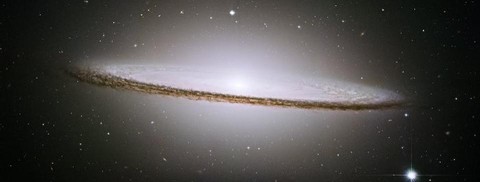
We have been looking at why some christians give up their faith, and whether evangelism and discipleship training should include apologetics. We have looked at reasons to believe related to Jesus and believing by faith.
The latest scientific information about the universe provides further good reasons to believe – but we need to understand both the facts and the arguments.
The scientific facts
- Our universe began with the big bang, about 14 million years ago. Matter, energy, space and time were all created at that moment at a tiny point, and the universe has been expanding ever since. Science has no explanation for how the big bang occurred.
- Cosmologists have discovered that the structure of our universe is determined, or described, by about a dozen numbers or cosmological constants – such as the value of the force of gravity, the charge on an electron and the initial rate of expansion of the big bang. If any of these numbers had been even a little different, the universe would have collapsed long ago or expanded even faster – either way, there would almost certainly be no galaxies, no suns, no planets …. and no possibility of life. Cosmologists say these values are too improbable to have occurred by chance alone.
- Some scientists believe our universe is part of an enormously large number of universes that have grown from each other – this set of universes is sometimes called the multiverse. This hypothesis cannot be proved and may never be, so some cosmologists don’t accept it. But if the multiverse exists, science cannot explain why it exists either, nor why it would have the amazing property of ‘creating’ zillions of universes.
The arguments
The cosmological argument starts with the fact of the universe and asks how did to come to be here? What caused it? It argues that it must have a cause external to itself, and what else could that cause be but God? Sceptics have objections to the argument, perhaps the main one being the claim that quantum physics shows that the universe could create itself out of nothing.
The teleological argument considers the design of the universal constants that has led, against all the odds, to our present universe, and asks whether it was the result of physical necessity, chance or design. The conclusion of cosmologists is that physical necessity and chance cannot explain it, and so the argument concludes that our universe must have been designed, and the only possible designer is God. Sceptics have several objections, including that we cannot know if the universe’s design is improbable by chance.
It seems to me that the arguments are strong in support of the probability that God exists, but do not amount to being proofs. Certainly they have been successfully argued in debates, especially by philosopher William Lane Craig. They are unlikely to convince someone whose mind is made up, but may well be helpful for people with a more open mind, especially:
- Our own faith – sometimes when I have doubts, I think through the reasons why I believe (which includes these two arguments) to check whether I still think the reasons are true.
- Helping other christians with their doubts – they too may need reminding of why they believe.
- Answering the questions of non-believers – these arguments probably won’t even convince anyone who is committed to non-belief, but they may help more open-minded non-believers.
Read more
If you would like to get more familiar with these arguments, check out The universe points to God.
Read the whole series
This post is part of a series on Training disciples to stand. Check out all the topics here.
[…] Arguments for faith Apologetics for disciples Reasons to believe 1 – Jesus Believing ‘by faith’ Reasons to believe 2 – the universe […]